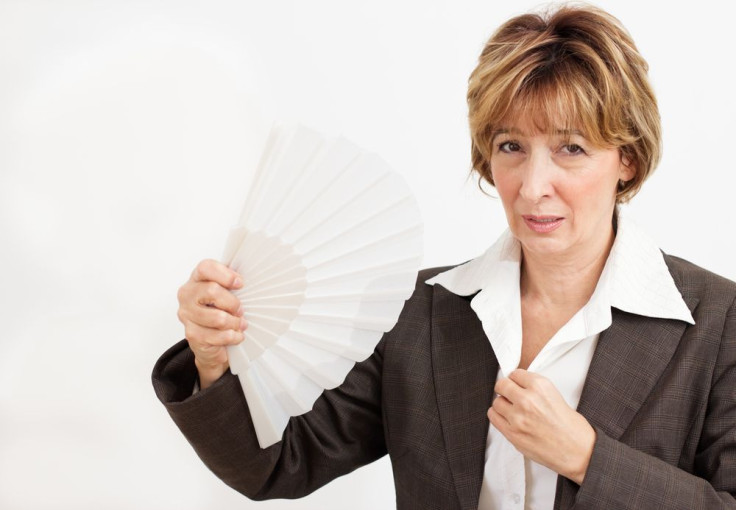Embarrassment Over Hot Flashes Could Be Costing Women Millions In Lost Wages And Hospital Visits

Hot flashes are a very common side effect of hormonal changes caused by menopause. However, many women become self-conscious over these intense bouts of sudden warm feelings around their face, neck, and chest. A recent study conducted at the Yale School of Medicine has revealed that women who do not undergo treatment for hot flashes collectively lose millions in lost wages and health care visits possibly due to the embarrassment they feel over this common symptom of menopause.
Vasomotor symptoms (VMS) are moderate to severe hot flashes that tend to go untreated in most women. Other than feeling hot, women who experience VMS are also faced with symptoms, including fatigue, sleep disturbance, depression, impaired short-term memory, and anxiety. Loss of ovarian hormones before and after menopause account for 70 percent of all VMS cases, while women who undergo a hysterectomy account for 90 percent of all cases. Since hot flashes can be perceived as a sign of an advanced age or a hysterectomy, women often feel embarrassed over these symptoms.
"Not treating these common symptoms causes many women to drop out of the labor force at a time when their careers are on the upswing," Dr. Philip Sarrel, emeritus Yale professor in the Departments of Obstetrics, Gynecology & Reproductive Sciences, and Psychiatry, said in a statement. "This also places demands on health care and drives up insurance costs."
Sarrel and his colleagues gathered data on health insurance claims for over 500,000 women, half of which experienced hot flashes while the other half did not. All of the women included in the study were insured by Fortune 500 companies. Over a period of 12 months, researchers calculated the costs of health care and work loss among women who did experience hot flashes and those who did not. VMS in women who have undergone a hysterectomy tend to be longer-lasting and more severe. In some cases, embarrassment or anxiety is actually what triggers hot flashes.
"Women are not mentioning it to their health care providers, and providers aren't bringing it up," Sarrel added. "The symptoms can be easily treated in a variety of ways, such as with low-dose hormone patches, non-hormonal medications, and simple environmental adjustments such as cooling the workplace."
Women who experienced hot flashes made 1.5 million more health care visits compared to women who did not experience hot flashes. Additional health care costs reached $339,559,458, while the cost of lost work wages climbed to another $27,668,410 throughout the course of the 12-month period. Aside from the issue of embarrassment, findings from the Women’s Health Initiative Study back in 2002 caused a sharp decline in the number of women who use hormone therapy to treat hot flashes due to an unfounded fear of cancer risk.
Source: Portman D, Lefebvre P, Sarrel P, et al. Incremental direct and indirect costs of untreated vasomotor symptoms. Menopause. 2014.



























